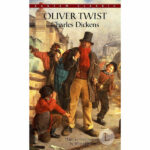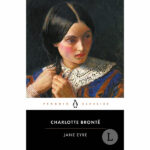Great Expectations is a bildungsroman written by Charles Dickens, chronicling the life of the protagonist, Pip, as he navigates the complexities of Victorian society. Set in the early to mid-19th century, the novel follows Pip’s journey from childhood to adulthood, exploring themes of social class, ambition, love, and morality. Dickens masterfully weaves a tale of self-discovery and personal growth through the lens of Victorian England, offering readers a timeless exploration of human nature and societal expectations.
BOOK INFO
version: CLASSIC, EBOOK, AUDIOBOOK
number of pages: 550
literary movement: VICTORIAN
literary genre: BILDUNGSROMAN
1st edition: 1860
SUMMARY
The story begins in the marshes of Kent, where young Pip, an orphan living with his sister and her husband, Joe Gargery, encounters an escaped convict named Magwitch. Pip aids Magwitch, an act that later proves to be life-altering. Pip is soon introduced to the eccentric Miss Havisham and her adopted daughter, Estella. Miss Havisham, a wealthy woman jilted at the altar years ago, lives in the decaying Satis House, and she raises Estella to break men’s hearts as a form of revenge against her own heartbreak. Pip falls in love with the cold and unattainable Estella, setting in motion his lifelong desire to become a gentleman and win her affection.
Pip’s fortunes take a turn when he receives news that he has “great expectations,” meaning an anonymous benefactor has bestowed a large sum of money on him. Believing Miss Havisham to be the benefactor, Pip moves to London to be educated as a gentleman. His newfound wealth leads him to abandon Joe and his humble upbringing, as he is swept up by the allure of high society. Pip’s journey into adulthood is fraught with complications, as he encounters various characters with their own agendas and motivations, such as the manipulative lawyer, Mr. Jaggers, and his clerk, the enigmatic Wemmick.
As Pip matures, he uncovers the true identity of his benefactor—Magwitch, the convict he helped as a child. This revelation forces Pip to reassess his values and confront the consequences of his actions. Despite his initial disgust, Pip helps Magwitch escape England, demonstrating his growth and moral development. The novel concludes with a sense of ambiguity, as Pip’s great expectations ultimately lead to disillusionment and a newfound understanding of what truly matters in life.
MAIN CHARACTERS
Pip (Philip Pirrip)
The protagonist and narrator of the novel. Pip is an orphan who dreams of becoming a gentleman and escaping his humble beginnings. He is kind-hearted but sometimes misguided by his ambitions and expectations.
Estella Havisham
Miss Havisham’s beautiful and aloof adopted daughter, whom Pip falls in love with. Estella is cold and unattainable, having been raised by Miss Havisham to break men’s hearts as a means of revenge for her own heartbreak.
Miss Havisham
A wealthy and eccentric woman who was jilted at the altar and has lived in her decaying mansion, Satis House, ever since. She adopts and raises Estella to take revenge on men by making her break their hearts.
Joe Gargery
Pip’s brother-in-law and father figure, a kind and simple blacksmith who loves and supports Pip unconditionally. Joe represents the value of loyalty and humility.
Abel Magwitch
An escaped convict whom Pip helps in the beginning, he later turns out to be Pip’s secret benefactor. His character demonstrates that people can change and that initial appearances can be deceptive.
Herbert Pocket
Pip’s closest friend in London, a kind and generous young man who helps Pip navigate high society. He is also Miss Havisham’s cousin.
Biddy
A kind and intelligent girl who helps Pip’s sister, Mrs. Joe, after she is attacked. Biddy represents the simple, honest life that Pip leaves behind in his pursuit of wealth and social standing.
Jaggers
A powerful and intimidating lawyer who represents both Pip’s interests and Miss Havisham’s. He is a central figure in the novel’s various legal and financial matters.
Wemmick
Jaggers’ loyal clerk who befriends Pip and helps him throughout the novel. Wemmick leads a double life, with a stern and professional demeanor at work and a warm and caring personality at home.
Mrs. Joe Gargery
Pip’s harsh and overbearing older sister, who raises him after their parents die. She is married to Joe Gargery and often mistreats both him and Pip.
We need never be ashamed of our tears.
CHARLES DICKENS
TOP 10 POINTS
- Authorship: Great Expectations is a novel written by the renowned English author Charles Dickens, first published as a serial in 1860-1861.
- Bildungsroman: The novel is a coming-of-age story (bildungsroman) that follows the life of its protagonist, Philip Pirrip, better known as Pip, from childhood to adulthood.
- Social Commentary: As with many of Dickens’ works, Great Expectations provides a social commentary on the class distinctions, injustices, and moral values of Victorian England.
- Pip’s Expectations: The title of the novel refers to Pip’s great expectations of becoming a gentleman and escaping his humble beginnings, largely driven by his love for the wealthy and beautiful Estella.
- Miss Havisham: One of the most memorable characters in the novel is the enigmatic and wealthy Miss Havisham, who was jilted at the altar and lives in her decaying mansion, Satis House, with her adopted daughter, Estella.
- Convict and Benefactor: Early in the story, Pip helps an escaped convict named Abel Magwitch, who later becomes a significant figure in Pip’s life as his secret benefactor.
- London Life: As Pip’s expectations begin to unfold, he moves to London and enters into a new life of luxury and high society, gradually losing touch with his origins and his loyal friends, like Joe Gargery.
- Moral Development: Throughout the novel, Pip undergoes moral growth and learns the true values of life, such as kindness, loyalty, and humility, eventually realizing that wealth and social standing are not the most important things.
- Love and Heartbreak: Pip’s unrequited love for Estella is a central theme in the novel, as he continually strives to win her affection, only to face heartbreak and disappointment.
- Dual endings: Interestingly, Dickens wrote two different endings for Great Expectations. The original, less optimistic ending was later revised to a more hopeful conclusion at the suggestion of a fellow writer, Edward Bulwer-Lytton.
Throughout the novel, Dickens explores the complexities of Victorian society, delving into themes of wealth, social class, and personal integrity. The characters’ motivations and moral choices serve as a reflection of the societal expectations placed upon them, while also challenging the notion that wealth and social status equate to happiness and success. Great Expectations is not only a coming-of-age story but also a critique of the rigid class structure and moral hypocrisy present in Victorian England, showcasing Dickens’ skill as both a storyteller and social commentator.
MOVIE ADAPTATION
Great Expectations has been adapted into numerous films, TV series, and stage productions since its publication. Notable film adaptations include the 1946 version directed by David Lean and the 1998 modern retelling directed by Alfonso Cuarón.
Great Expectations (1998) is a contemporary adaptation of Charles Dickens’ classic novel, directed by Alfonso Cuarón. The film stars Ethan Hawke as Finn (a modern-day Pip), Gwyneth Paltrow as Estella, and Robert De Niro as Arthur Lustig (the film’s version of Abel Magwitch). The story follows Finn, an orphaned artist, who falls in love with Estella, a wealthy and enigmatic young woman with whom he shares a complicated past.
Set in modern-day America, the film is a visually striking reinterpretation of Dickens’ timeless story of love, ambition, and social class. The screenplay, written by Mitch Glazer, reimagines the novel’s key events and characters to suit the contemporary setting. Notable changes include Finn’s artistic aspirations rather than his desire to become a gentleman, and the character of Miss Havisham being replaced by Anne Bancroft’s Ms. Dinsmoor.
While the movie received mixed reviews from critics, it has since gained a cult following and is appreciated for its unique take on the classic novel. The film’s lush cinematography and atmospheric settings, combined with a haunting score by Patrick Doyle, create an evocative adaptation of Dickens’ work that resonates with modern audiences.
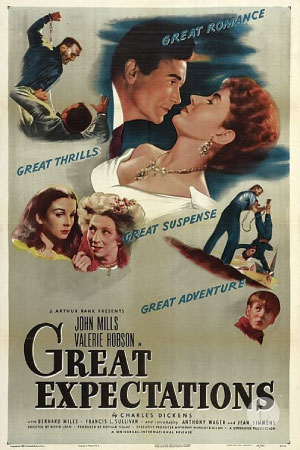
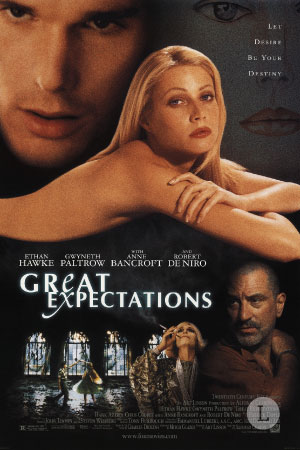
ABOUT WRITER
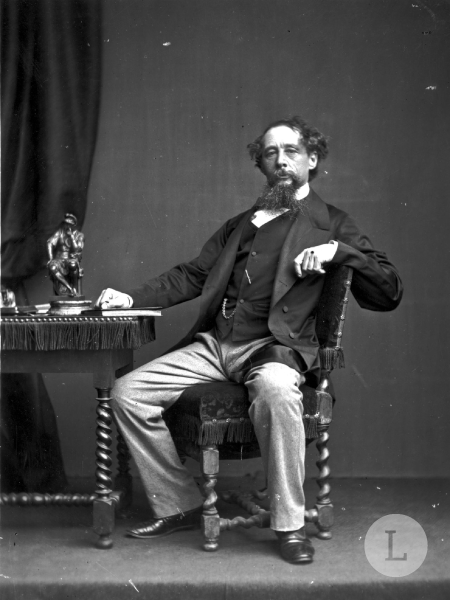
Charles Dickens, born on February 7, 1812, in Portsmouth, England, was a prolific author, social critic, and one of the most influential literary figures in history. His novels, filled with memorable characters and vivid portrayals of Victorian society, continue to resonate with readers worldwide. In this comprehensive article, we will examine the life of Charles Dickens, explore his most popular works, and reflect on his enduring literary legacy.

